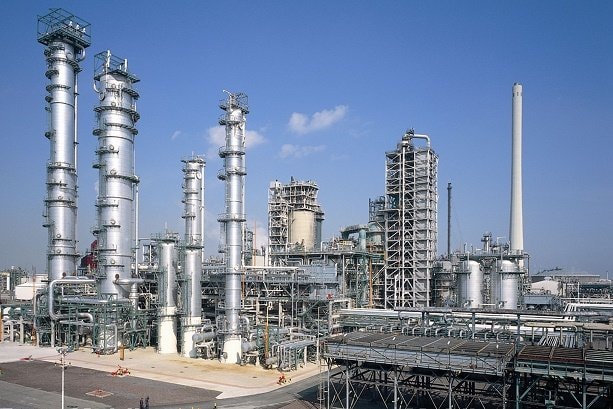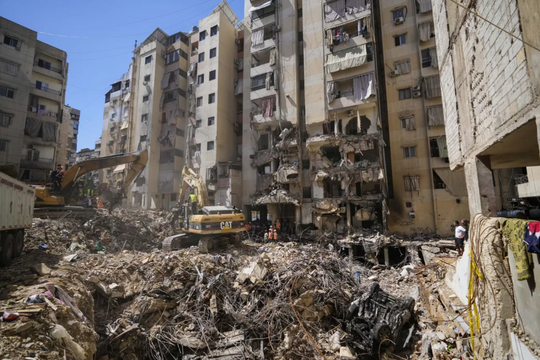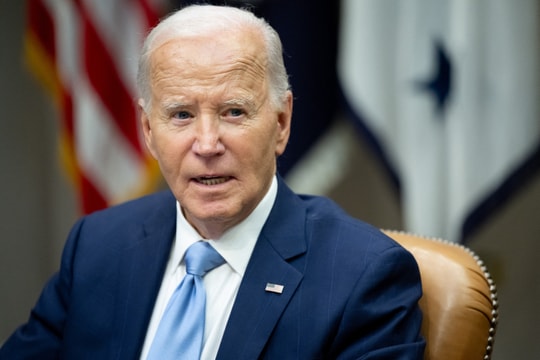What are the risks involved in Israel's retaliatory strike options against Iran?
Israel is considering a number of options to retaliate against Iran, including strikes on military bases, manufacturing facilities, or even nuclear plants. However, each option carries significant risks and could lead to a larger conflict.
Israel is considering retaliatory strikes against Iran. It could choose to target military bases, important economic facilities, or even Iran's nuclear plants. However, US President Joe Biden has warned Israel that the US will not support any Israeli attack on nuclear plants. Meanwhile, other Western countries have also urged Israel to remain calm.

Iran's current air defense system is limited and may not be able to counter Israel's modern missile or air force attacks. This was demonstrated by Israel's attack on April 19 when the country carried out a precision strike that partially destroyed the Russian S-300 air defense system in the city of Isfahan, an important military industrial center of Iran. Through this attack, Israel wanted to send a clear message about its military capabilities and deter Iran.
Fabian Hinz, a leading Middle East expert at the UK's International Institute for Strategic Studies, said Israel is considering various strategic options, which could include strikes on Iranian military or economic targets, if it decides not to attack nuclear plants.
Military objectives
The most direct response, according to Fabian Hinz, would be for Israel to attempt to strike Iran’s cluster of missile and drone bases, which are underground and in some cases “deep under mountains.” While they could be bombed and their entrances blocked, the bases are designed to withstand all conventional explosives.
Alternatives could include expanding attacks on Iran’s air defenses beyond current bases to include key areas such as Tehran, Isfahan, and ports. Another option is more sophisticated attacks, such as using drones to destroy weapons factories, similar to the January 2023 attack on the Isfahan factory.
However, it should be noted that any attack could lead to unwanted consequences, such as civilian casualties and escalating tensions in the region.
Oil infrastructure and economic infrastructure goals
An attack on Iran's oil infrastructure has been considered as a possible response to the Israeli ballistic missile attack. The most widely considered target is the Kharg oil port, which handles about 90% of Iran's crude oil exports, much of which goes to China. Other important facilities include the Abadan refinery, near the border with Iraq, which handles a significant portion of Iran's domestic oil needs.

According to expert Fabian Hinz, the oil industry is a major vulnerability for Iran. If attacked, it could be severely damaged, with long-term negative effects on the country’s already unstable economy. Hinz cited the Israeli bombing of Yemen as an example. Targeting fuel, power and port facilities such as Ras Issa and Hodeidah shows that attacks on economic infrastructure can cause serious and lasting damage.
A major question in the wake of Iran’s attack is whether the economic response is truly proportionate. While Iran claims to have attacked Israeli military facilities, causing minimal damage, a school in Ashkelon was hit, causing serious damage. The fact that a civilian facility was hit raises questions about Iran’s ability to control its attacks and raises concerns about the humanitarian consequences.
A widespread Israeli attack could escalate tensions and provoke a fierce response from Iran. Major General Bagheri, Iran's military chief, warned that if attacked, Iran would not retaliate with just a few missiles but would launch a larger salvo and hit more targets. He also said that subsequent attacks would be more powerful and target all of Israel's infrastructure.
Expanding the targeted killing plan
A report in the New York Times said that Israel could take a different tack, expanding its targeted killing program further into Iran. It has already demonstrated its ability to carry out assassinations in Tehran, after killing Hamas political leader Ismail Haniyeh in late July. It detonated an explosive device that had been secretly planted two months earlier in the guesthouse where he was staying.
Israel is suspected of having assassinated several of Iran’s top nuclear scientists, most famously Mohsen Fakhrizadeh, who was shot dead with a special remote-controlled machine gun in late 2020. Israel, however, is unfazed by Iran’s threat of missile retaliation, with the Israeli prime minister publicly stating that Iran would face the consequences.
Targets of nuclear facilities
Military experts believe that Israel cannot carry out a devastating attack on Iran's nuclear network without direct military support from the United States. The main sites where Iran is enriching uranium to 60% purity, Natanz and Fordow, are both underground, under dozens of meters of rock and concrete.
“The only conventional weapon that can achieve this is the US GBU-57A/B large armor-piercing bomb, which weighs more than 12 tons and is 6 meters long, and can only be carried by large US bombers such as the B-2 Spirit,” said an article published last April by the Journal of the Atomic Scientists.
If Israel were to attack smaller parts of Iran’s nuclear program, such as centrifuge plants (used to enrich uranium, a substance needed to make a bomb), it could slow down Iran’s nuclear program. However, such an attack could also anger Iran and make it more determined to develop a bomb faster in retaliation. In other words, instead of preventing Iran from obtaining a nuclear weapon, the attack could make Iran want one even more.
Military experts say: "The Tehran government may see weaponizing its nuclear program as the only remaining option that can guarantee the security of the Iranian regime."


.jpg)



